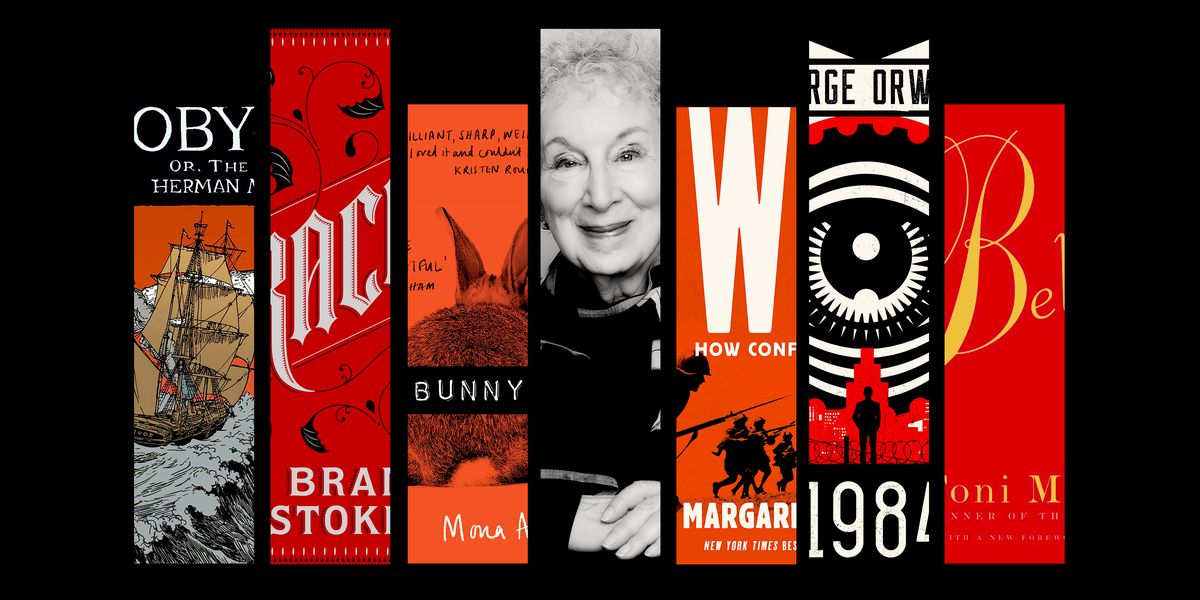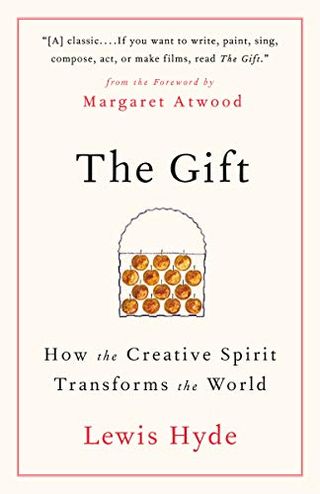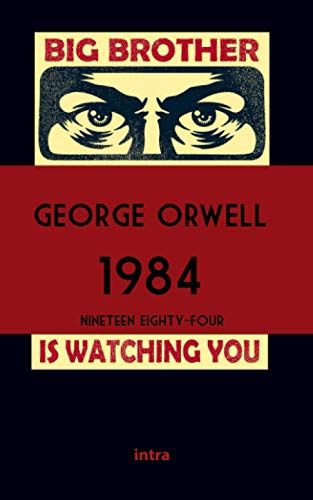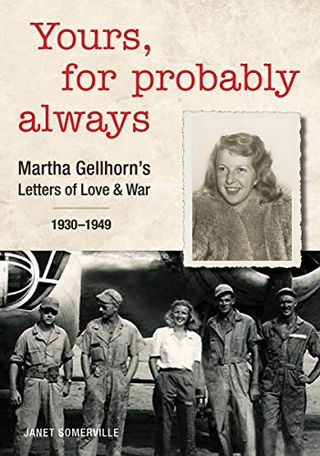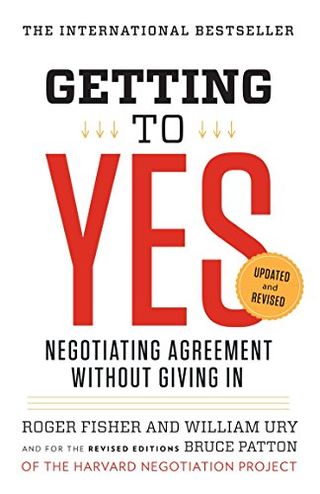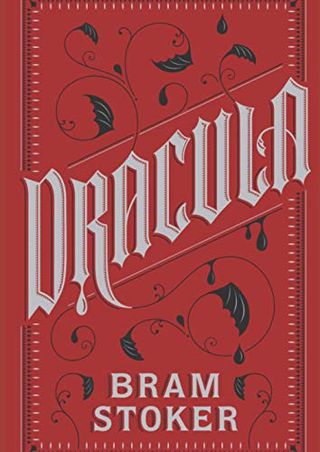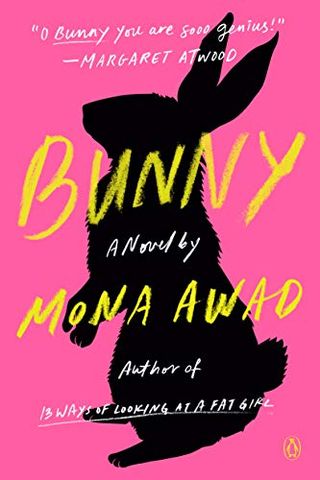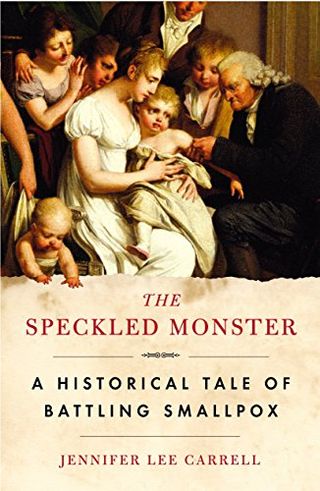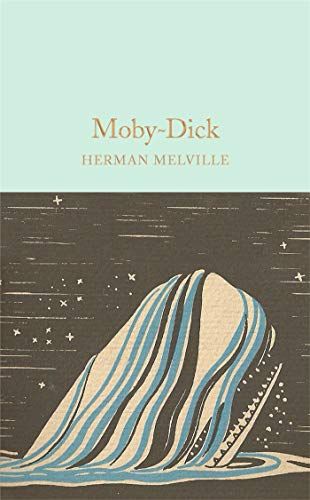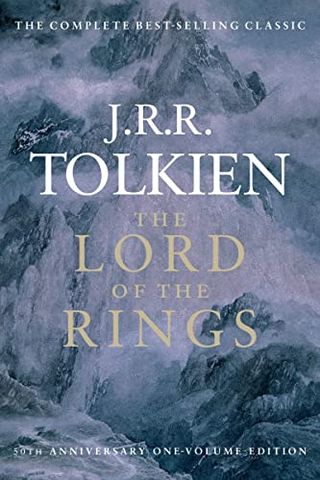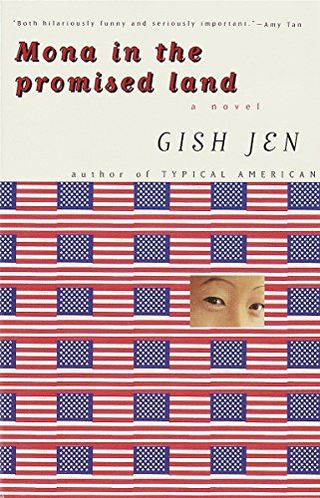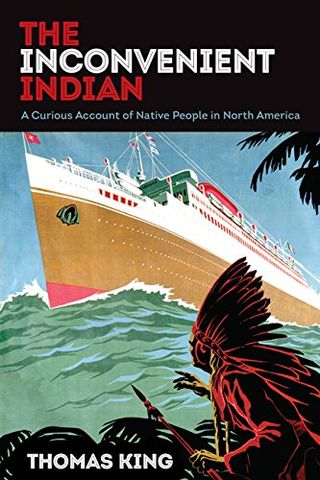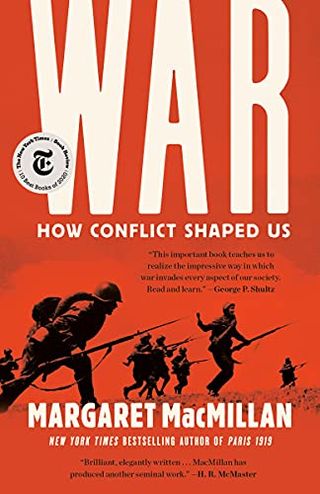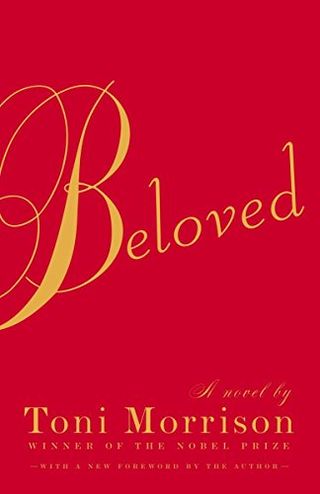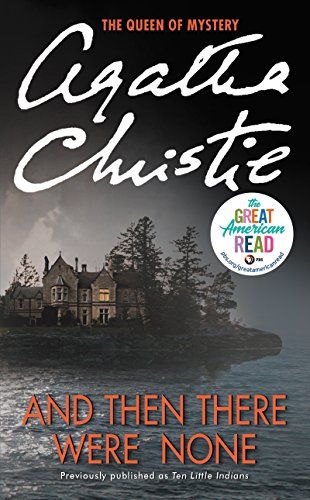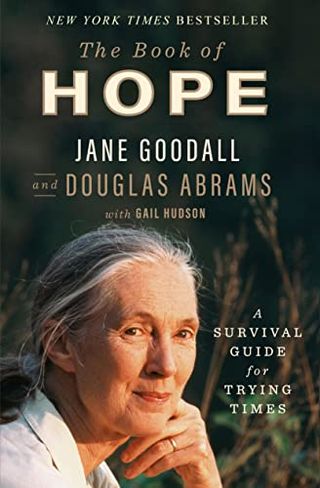Welcome to Shelf Life, ELLE.com’s books column, in which authors share their most memorable reads. Whether you’re on the hunt for a book to console you, move you profoundly, or make you laugh, consider a recommendation from the writers in our series, who, like you (since you’re here), love books. Perhaps one of their favorite titles will become one of yours, too.
From art to zombies, Margaret Atwood tackles Burning Questions (Doubleday), a collection of essays from 2004 to 2021 out today. The author has written more than 60 novels, books of poetry, non-fiction works, children’s books and graphic novels. Her 17th and most recent novel, The Testaments (2019), was a sequel to the dystopian The Handmaid’s Tale (1985), which has been adapted to a movie (with Faye Dunaway), opera, ballet, play, and Hulu series. (Atwood made a season 1 cameo, slapping Elisabeth Moss’s Offred).
The Ottawa-born, Toronto-based Atwood has won a litany of awards, including the Booker Prize for The Testaments and 2000’s The Blind Assassin (nominated five times, she is one of four authors to win more than once since the awards began in 1969), the National Book Critics Circle Ivan Sandrof Lifetime Achievement Award, and the PEN Center USA Lifetime Achievement Award.
The daughter of a forest entomologist and schoolteacher, Atwood has six patents; has written song lyrics to raise awareness on gender-based violence and craft beer tasting notes; is featured on a candle, a holiday tree ornament, the Zombies, Run! app, and—a first for Shelf Life—a postage stamp. She is the subject of the documentary Margaret Atwood: A Word After a Word After a Word is Power; did a Reddit AMA; an investor in Recompose (a company that composts human bodies as an alternative to burial or cremation), and was the first contributor to the Future Library Project (writers submit work that won’t be released until 2114).
The environmentalist and avid bird watcher built a bird observatory on Ontario’s Pelee Island with her late husband, novelist Graeme Gibson. This spring she launches Practical Utopias, a virtual program of seminars and workshops addressing global challenges like climate change and health care.
The book that:
…I recommend over and over again:
I recommend Lewis Hyde’s book The Gift to anyone talking to me about being a writer, or indeed an artist of any kind, as it spells out the difference between the “gift” economy – artists are “gifted” – and the money economy. They operate in different ways!
…shaped my worldview:
No question that George Orwell’s 1984—read by me as a young adolescent—was key to my understanding of how totalitarianisms of any kind operate—resulting, much later and after much more dystopia-reading, in my writing of The Handmaid’s Tale.
…made me feel I knew the writer personally:
The letters of the intrepid and passionate war correspondent, Martha Gellhorn – collected by Janet Somerville in Yours, For Probably Always – written during the Spanish Civil War and WWII – have an immediacy and fluency that’s very up close and appealing.
…I’d gift to a new graduate:
The negotiating handbook, Getting to Yes. Every young person needs this to help them come to fair agreements on just about everything.
…has the best title:
I’m going for Dracula, because it’s not only an arresting title in itself, it’s an integral part of the book. During the opening sequence, Jonathan Harker doesn’t know he’s in a novel called Dracula. But the readers know it! They feel the threat, he does not. It’s the Hitchcock bomb-under-the-bed stratagem.
…I’d like turned into a Netflix show:
Mona Awad’s hilarious and creepy novel Bunny. But then, I think it is being turned into a Netflix show, or similar. (Ed note: The book is being adapted for film by Jenni Konner, who will also direct for New Regency Productions.)
…I could only have discovered at…: an outdoor on-sale stand at Book City in Toronto:
The Speckled Monster: A Historical Tale of Battling Smallpox by Jennifer Lee Carrell. Fascinating, and so timely – including the impulse to hang the advocates of inoculation (later to become vaccination). People in Africa knew how to prevent smallpox long before Europeans did, by the way.
…has the best opening line:
I’m sticking with Moby Dick. Three words: Call me Ishmael. Why? Why is he using a pseudonym? Why that one? The name of a wanderer in the wilderness? What’s his real name?
…I consider literary comfort food:
Whenever things are very tense in the outside world I crawl under the bed and read Lord of the Rings. It’s tense in there too, but we know how it comes out! And boy do you ever know who the bad guys are! Though I’ve always wondered what they ate.
…made me laugh out loud:
A lot of books, but right now Gish Jen, Mona in the Promised Land. Generational and cultural conflict with 1,000 twists!
…everyone should read:
Thomas King, The Inconvenient Indian. Because it would really help them understand what is at stake in Native North American protests… the backstory, or a good chunk of it.
…I last bought:
Margaret MacMillan’s War: How Conflict Shaped Us. Yes, war is icky, but that’s no reason not to study it, universities. In fact it’s a very good reason TO study it. If we didn’t study viruses because they’re icky, what then? No pearl-clutching, ladies. Margaret M. isn’t clutching hers! And we’re entering yet another era of conflicts, it appears.
…should be on every college syllabus:
Toni Morrison’s Beloved. I’m biased because I reviewed it when it first came out and was gripped by it then, but it stands up… history, a ghost story, a deep plunge through the near-present into the past that has shaped it.
…surprised me:
Agatha Christie’s And Then There Were None. I didn’t guess the murderer.
…fills me with hope:
Jane Goodall’s The Book of Hope. If she can be hopeful considering all she knows about the threatened biosphere and species loss, then so can we.
Bonus question: If I could live in any library or bookstore in the world, it would be:
Livraria Lello, Porto, Portugal. It is stunningly beautiful, as well as being chock full o’books. But I’d have to learn Portuguese.
This content is created and maintained by a third party, and imported onto this page to help users provide their email addresses. You may be able to find more information about this and similar content at piano.io
